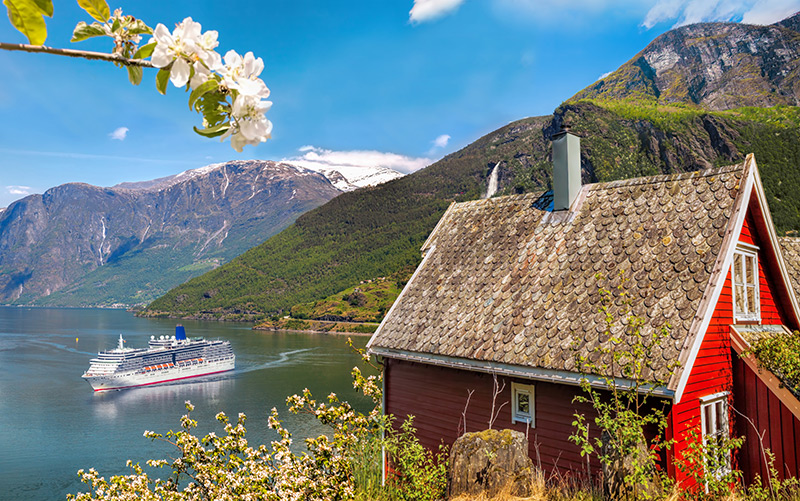
A Norwegian real estate agent gives us the lowdown on the ins and outs of buying property in Norway.
Finding a place to live in a major Norwegian city such as Oslo or Stavanger can be an overwhelming and daunting task, not to mention expensive.
Add into the mix all of the nuances that come along with buying instead of renting a home in Norway, and one might find themselves swirled into the perfect storm of confusion and frustration.
If you're considering buying a place, it's well worth renting a home first. This will help you decide on an area, plus whether a certain size place is going to be enough for you. Not only that, it gives you a get out clause should life in Norway not work out for you!
Once you've decided to buy, do your research. Even if you've owned property in other countries before, the Norwegian system will be different to what you're used to. First off, you'll need to choose between freehold or a form of shared ownership such as a borettslag.
Interview with a Norwegian real estate broker
Mats Lundal is a real estate broker with DNB Eiendom in Stavanger and helps local expats and Norwegians alike find their dream home. I sat down with Lundal recently, and here is what he had to say about buying and selling real estate in Norway.
Read more: Mountain Cabin Property Boom in Norway
%27%20fill-opacity%3D%27.5%27%3E%3Cellipse%20fill-opacity%3D%22.5%22%20rx%3D%221%22%20ry%3D%221%22%20transform%3D%22matrix(22.46465%2081.0049%20-135.27692%2037.51561%20125.7%20247.3)%22%2F%3E%3Cellipse%20fill%3D%22%23fff%22%20fill-opacity%3D%22.5%22%20rx%3D%221%22%20ry%3D%221%22%20transform%3D%22matrix(-13.2885%20-84.96076%20195.668%20-30.60394%2090.2%2063.3)%22%2F%3E%3Cellipse%20fill%3D%22%23fff%22%20fill-opacity%3D%22.5%22%20rx%3D%221%22%20ry%3D%221%22%20transform%3D%22rotate(-24.2%20190.2%20-378.2)%20scale(56.2349%20110.94023)%22%2F%3E%3Cellipse%20fill-opacity%3D%22.5%22%20rx%3D%221%22%20ry%3D%221%22%20transform%3D%22matrix(-50.1756%2064.22184%20-50.95307%20-39.8089%20165.4%20252.1)%22%2F%3E%3C%2Fg%3E%3C%2Fsvg%3E) Can you explain, in simple terms, the process for buying property in Norway?
Can you explain, in simple terms, the process for buying property in Norway?
To begin the process, I’d suggest first meeting with your bank to find out how much of a mortgage loan you qualify to borrow from the bank.
After you’ve established your financial standing with your bank, then you should begin looking at properties on the market online first and eventually, by going to open houses. This is the time to discover which areas of the city you like and what type of property you’d like to live in.
If you find a property you think you might want to live in, obtain the prospectus and carefully read though it so you can learn more about the structure of the house and the surrounding area.
Pay special attention to the boligsalgsrapport, an explanation of the technical aspects of the house such as the drainage, foundation, roof and other areas of the house.
If you decide you want to make an offer to buy the house, you should be aware that the rules in Norway stipulate that the first bid has to be valid until 12:00 noon on the first working day after the last open house.
Read more: Preparing to Move to Norway
These same laws stipulate that all offers from each bidder be in writing. Bid offers in Norway are legally binding, and stiff penalties are levied if a potential buyer makes an offer on a house that they cannot afford.
And what about selling property in Norway? What does that process entail?
First of I would recommend finding a good real estate broker. You can talk to colleagues or check out www.eiendomsmeglerguiden.no for info about real estate brokers in Norway. This site has guides, reviews and references from brokers in different areas around Norway and is a good tool to use.
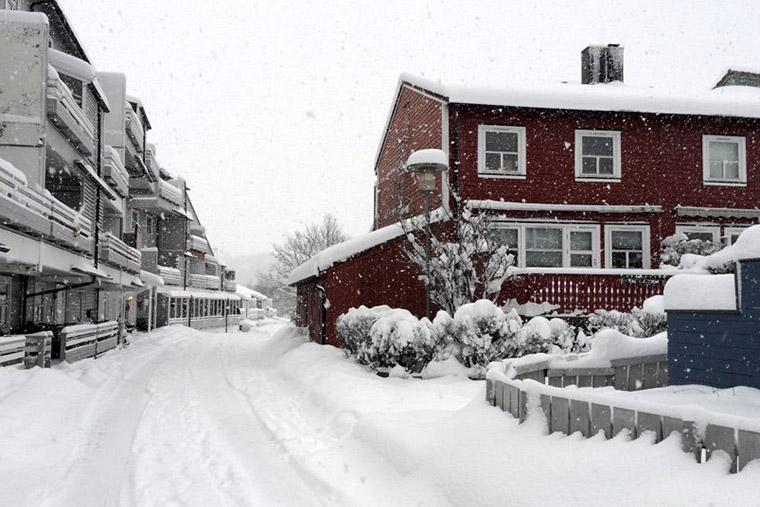
When you find a real estate broker you’d like to work with, you normally meet them at your home for a viewing of your property. The broker then does a walk through valuation of your property to determine its value.
If you like the broker and agree that you’d like to work with them to sell your property, you sign a written agreement with them in order to proceed in selling your home.
Prior to the house being listed on the market, you’ll need to fill out the energimerking form online and submit a written declaration form called an egenerklæring. These forms establish the energy efficiency of the property and provide notice to potential buyers if there are problems with the house.
Read more: Moving to Norway: The Complete Relocation Guide
The broker will arrange a photographer and takstmann so the prospectus can be made and the property listed on popular real estate web sites. An open house is normally held 5-14 days after the property is first shown online.
What is the role of the real estate broker in Norway? Do the seller and buyer both have brokers working on their behalf during a transaction?
Under the law, we are all required to act in accordance with good real estate practices and be independent third party to every transaction. This means we are required to provide the seller and buyer information that is relevant to sale process.
In other words its not usual to have one broker for both the buyer and the seller during the transaction but some people have a broker that helps them with everything from selling to buying.

There are different types of real estate agents in Norway, with the most common being eiendomsmegler, eiendomsmeglerfullmektig and megler.
Eiendomsmegler means that the agent has had three years of real estate education after high school and have at least two years’ experience. Eiendomsmeglerfullmektig means the agent has had three years of real estate school but less than 2 years’ experience.
A megler is someone who has worked in the real estate industry for a period before the stricter requirements in real estate law were adopted. Meglers have had to pass a special test approved by the Finanstilsynet.
How does the broker in the transaction get paid, and what fees can the buyer or seller expect?
The broker is paid on commission after the tax is paid. The amount of commission varies from sale to sale and broker to broker. The amount of commission per sales transaction is not mandated by law.
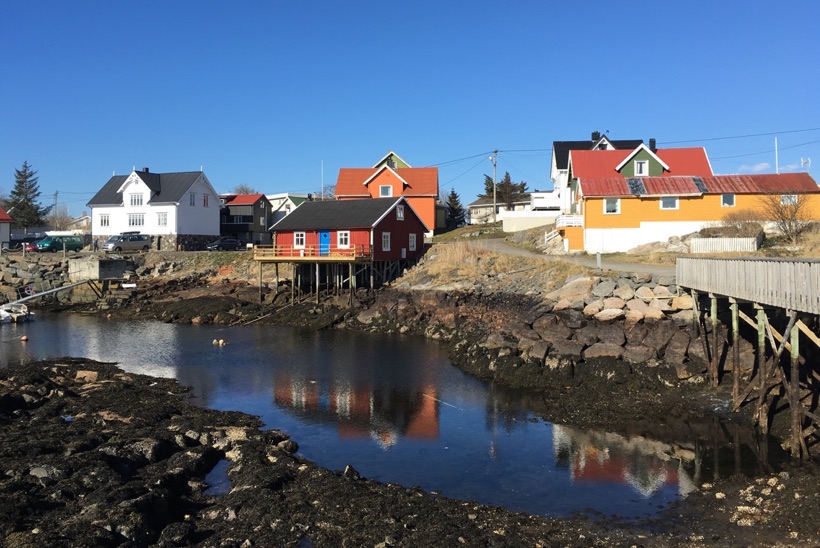
Upfront, the seller normally only pays the takstmann upfront because they are contracted specialists and do not work for the broker. All other costs associated with the sale are paid when the transaction is completed.
Stavanger has a large expat community, many of whom are utterly shocked at the real estate prices here. Why is real estate in Stavanger so expensive?
Stavanger is an attractive area to live in where salaries are above the national average and the education level is higher than average as well. It is known for having access to great outdoor activities such as surfing, hiking, biking and some of Norway’s best beaches.
Stavanger is also home to cultural events like the theatre and concert house as well as sporting events. Most of the industry here is related to the energy sector, which tends to have higher salaries, thus supporting a higher standard of living and higher house prices.
Also, there is an increase in people moving to this area from all over Norway and the world for jobs, further increasing the demand for properties in Stavanger.
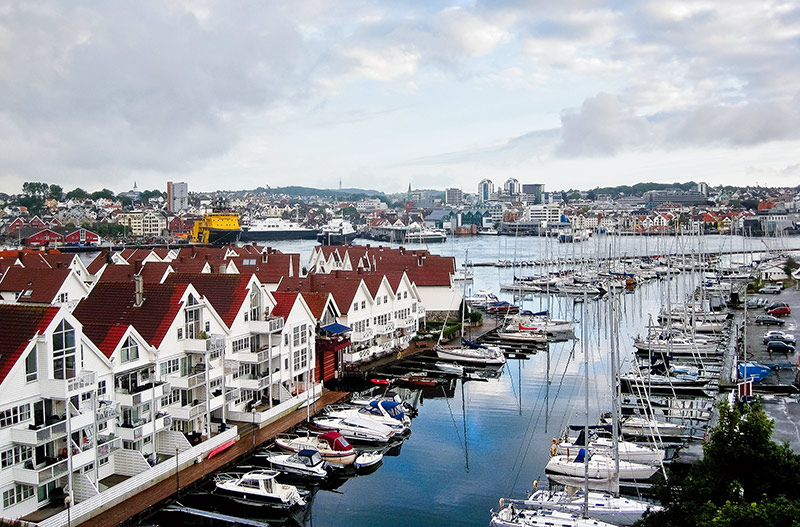
There has been talk in the media about property bubbles in Stavanger and in Oslo for years due to the high prices of real estate. Do you think a property bubble exists in the Stavanger area? Or in Oslo?
No, neither Stavanger or Oslo. The buoyant local economy in both cities plus the number of new houses, apartments and other residences is in balance to support the local economy. This means there will always be market for buyers and sellers.
What are the most common concerns you hear from expats about buying property, and your tips for overcoming these concerns?
Expats tend to focus a lot on price here, which is understandable as prices can be so much higher than they are used to back home.
As the energy sector is currently reducing its work force, prices may stabilize more or drop slightly for a period of time. Industry indications show that the real estate market is stable and should increase by 2-4% each year.
What words of wisdom can you offer first time buyers who may be from another country?
I have not sold anything in the US or the UK yet but I do know a thing or two about buying real estate in Norway. My advice is set your must have list and try to find a property which suits your lifestyle.
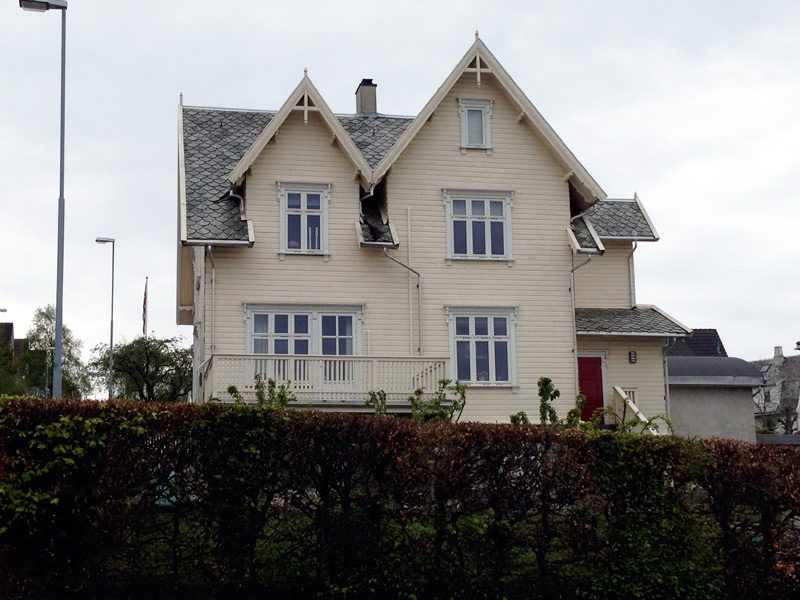
Do not try to find a “bargain” or a property that you think you can flip just to make money. Think long term not a quick investment.
I’d also recommend expats contact a broker and tell him/her what they are looking for so the broker can guide them to the house/apartment that's best for their lifestyle.
This is not a standard thing to do but I have at least 5 regular customers that use me for finding both homes and investments for them in the market. I don’t charge anything for this but providing this extra service helps me with referrals.
The Norwegian Financial Services Authority (Finanstilsynet) updated a law a 2011, which means that banks are no longer allowed to grant 100% financing to borrowers for purchasing real estate. How has the change in law altered the market for buyers and for sellers in the Stavanger area?
The local real estate market for smaller apartments has cooled down. This means it is harder for people to get on the property ladder, especially young people.
Did you find this article useful? Then please consider sharing it on Pinterest so others can find it too. We've got just the pin for that:
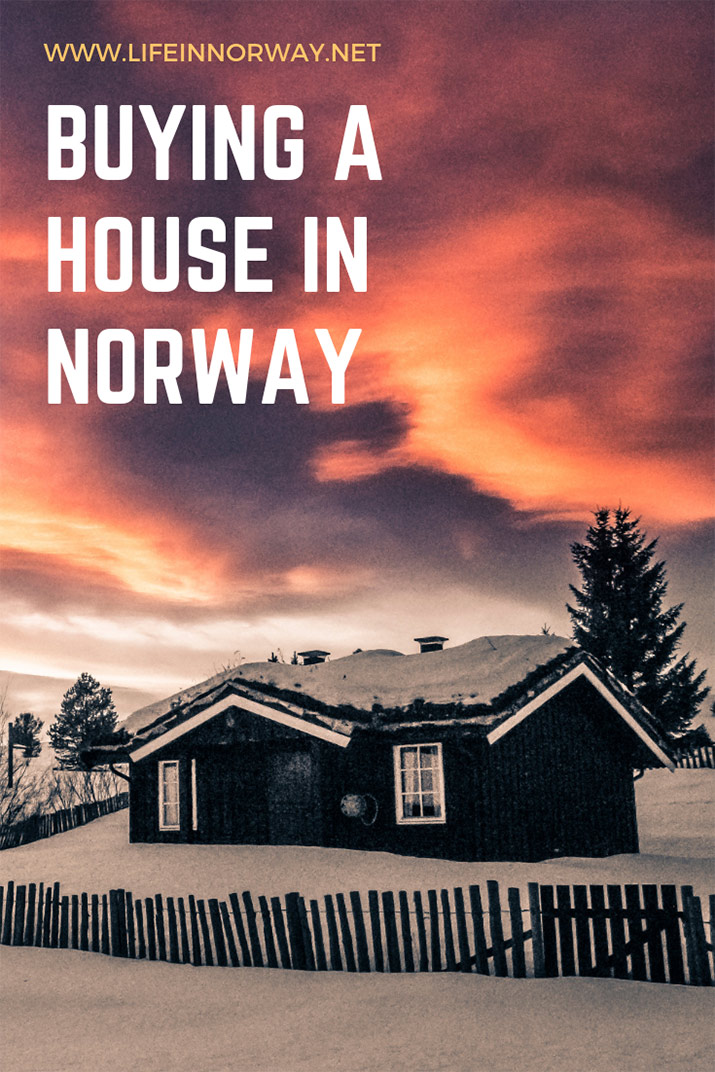

 Can you explain, in simple terms, the process for buying property in Norway?
Can you explain, in simple terms, the process for buying property in Norway?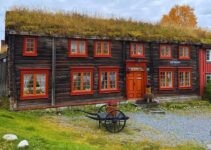



Thanks for the article. We are currently weighting the pros and cons of buying a flat in Oslo and it is hard to even get a mortgage as foreigners! You need at least 15% of the flat price upfront if not more.
I have talked to two different bankers in DNB and theyy told me that as a foreigner I need 25% egenkapital (downpayment) before I can even buy a house. Which means I have to have 500.000 kr for a 2million house.
You need 25% regardless of whether you are Norwegian or a foreigner. The only exception is for first-time buyers under 35%, who can possibly qualify for a 15% deposit. This is one reason why the shared ownership model (where mortgage payments are low but a high monthly “rent” is charged) is so popular here. Check out our Housing section for more up-to-date information.
You need 25% capital only if you’re over 34. If you’re 34 or under or under you need 15% capital. It has nothing to do with being a foreigner or not therefore you should have a talk with whoever that give you that false information boss.
I am Indian Resident, want to buy property in Norway. Is it possible, and will the property be under my name
looking at apartments here in Bergen, i see the felles kostnad for services etc varies so much, possibly stipulating their building owner is possibly profiting from the services as well as the selling of apartments in his/hers building, does norway not regulate the property market in such a was as to prevent these huge differences and prevent certain areas overwhelming another in profit ??? and possibly, actual bang for buck power… some have heating included some dont, some have broadbant fiber net provided, some have nothing but are more than those that offerer everything…
Is there any balance or is it get what you can despite the consequences of later years, like we have had in england and europe ???
just a thought …
I am interested in buying property in Norway. Was interested in your comment where you say “Do not try to find a “bargain” or a property that you think you can flip just to make money. Think long term not a quick investment.” Why shouldn’t I or anyone think about making money, and flipping the property.. doesn’t this happen in Norway? Are you saying this isn’t ethical or illegal in Norway?
When I lived in Norway back in 1974 and 1975, you had to pay a huge percent, somewhere between 25 % to 35% in taxes, if you sold the house within 15 years after purchasing it.
Can you please advise of the likely or estimated costs in purchasing a property? What property websites would you advise expats to use in searching for properties? Are there also other websites offering good advice in English? Thank you, Christopher
Hi I’m from Hong Kong and I’m planning to buy a property in Norway for retirement. I would like to know the average cost of buying a house / flat in a place like Stavanger or some smaller towns. Without a resident permit, do we have to pay the full payment in one go?
Thanks! 🙂
Hi
Thanks for the useful article.
I have a question regarding purchasing a new-built home
– should the potential buyer contact the megler (agent) or the Byggmester (builder) for more detail/information regarding the home?
– is it possible to find out the reputation and/or quality of the builder?
Hello 🙂
I am looking into a condo in Tromso, and one thing I keep seeing is “price,” and “public debt,” which seems to role into the final price. I see a few other items contributing to the final price, as well, but public debt appears to be the biggest, and seems to vary significantly between properties. Where can I find some explanations of these pricing contributors?
Any info, suggestions, tips, very much appreciated!
Best wishes/ thanks
Ben
My husband and I are thinking about retiring to Norway. We are looking for a home that is a minimum of 2000 square feet and with a maximum price of between 300,000 to 400,000 US dollars. We would like it to have an ocean view..with plenty of privacy and no close neighbors..and still be no further than 30 minutes from a city that has a variety of restaurants..especially sushi and asian food. Can someone please recommend an area we should look for a home like this? Thank you kindly.
You’ll need to decide what’s more important: Being close to the city, having a water view or the size of the house. You definitely wont get all three, and you’ll struggle to get two in much of the country. To get more of a feel for what you can get for the money, look at finn.no, which is far by and away the biggest property sales search engine in Norway. Good luck with your search!
Thank you kindly for this reply, David. I’m sorry for the late response, but your website never messaged me you replied as I thought it would. I just happened to see your message while searching once again for real estate listings in Norway. I hope you are doing well and take care!
My wife and I would also love to retire in Norway, but due to the expense of owning a home, and because we plan to travel extensively, we’ll likely rent for the time we are in Norway, Sweden, or, in Tuscany and Austria. Perhaps we’ll rent for a year or two in each! To be tied to only one home with so much of our capital tied up – – renting for us makes more sense. I’m not sure an American can purchase a home c. 2000sq ft with ocean or close to city views for 300K to 400K. You’d likely have to go into small towns away from the top 7 or 8 metro areas. If you were in one of those top metro areas, you’d be spending closer to $750K to $1.5 million for what you want.
Thank you for the reply, Kent. My husband and I are now also considering renting because we too would love to travel and see the world. Hopefully we can find a beautiful apartment in Norway to rent for a while. Be well!
I am Ukrainian, looking for the house in Norway. I need some good advice how I can do it legally. Thank you.
Are the cost of penalties for not having the deposit in time once a bid has been accepted based on the cost of the property? Is it a percentage or a set amount and how much, please?
Once a bid is accepted and the deposit is going to be late getting into the seller’s account by a week, maybe 2 weeks, what will happen?
we live in Canada, but own 3 tracts of land in Norway that we would like to sell. The land is in the Fjell area, very close to the Festning Fjell which has become a successful tourist attraction. The lands are also on lakes and other water features, some in the mountain and some below in the beautiful meadow. Could you recommend an agent who might be interested in taking this listing.
Are these still available. I’d been interested to know more
I would like to buy a property in Norway before moving there. The problem is getting a “D” or tax number. The realtor says get it from the bank, the bank says from the tax office, the tax office says from the bank or realtor. How does an EU citizen get a D number before moving there? If you don’t work or go to school there no one will give you one.
thanks
I would recommend renting for at least a couple of months so you can spend some time looking at which areas you would most like to live in. This is something you can only really do when you’re here and understand your day-to-day needs.
Hi Thomas.
My husband is from Italy and got his ID-number 7 days after we moved to Norway. We moved here as “person with own funds”, so it wasn’t necessary to study or work in order to abtain it. You can check the UDI website for further information.
Did you get that D-number? I am trying to get one. I tried the tax office, they sent me to the mapping authority. The mapping authority sent me back to the tax office. The bank said try the tax office. Still no D- number to buy a house in Norway.
i am 15 and want to move to Norway when i am older because of my ancestry and am hoping you can recommend a good site to look for homes. thanks : )
Hi All,
I am a UK resident and planning to buy an apartment in Oslo. Planned to use it as holiday and/or investment property. I would like to buy with my own funds so no bank loan needed.
Any advice in term of transfering money to norway, any registration with authority to buy property and transferring money from UK to Norway?
Any documents from UK about tax or legitimacy of money or source of money ?
Kind Regards
Per
Did you find out how to do all that? I’m trying the same myself, but from the USA.
Hello,
Next year my daughter is planning (hopefully) to apply for a Norwegian University (Bergen, or Oslo), and I think buying a small flat is better idea instead of renting a flat. I am also planning to move by and stay there with her till she finishes her school.
Does it sounds a good idea?
Also, would it be possible to a foreigner for work there even not having an EU Citizenship, but BSc. degree?
Kind regards,
Hande
Hi, you would need a job in order to get a work permit. There are a lot of articles on the site about immigration, just search in the “Move to Norway” section for more info.
I have a customer that has property for sale in Norway but has moved to the U.S. What is the best avenue that I can lead him to?
How long must I own a property before I can sell it after doing it up.
I was told that if you sold your house before the 5 year limit you would have to pay 35% tax on the profit you may make. E.g. if you bought a place for 500000kr and sold it for 750000kr you pay tax on the 250000 bit.
Hi There
Can you recommend some estate agents that have english website.
Thank you
Warren
Can you move straight to Norway and buy a house outright – obviously if you have the cash to do it?
Anyone can buy a house – but it’s totally unrelated to your right to live in Norway.
Hi, Thanks for the great information, I have a question here.
Can you have all your salary, earnings and capital in one bank, and when you want a house mortgage, just go to another bank, open an account, and request a loan from them without having anything there? (mostly because they offer better rates)
Yes, you can. They are not related.
Hi
I’m looking for house or cabin in lofoten
Do you know what is the minimum price that I can find any nice cabin
60-100 meter ?